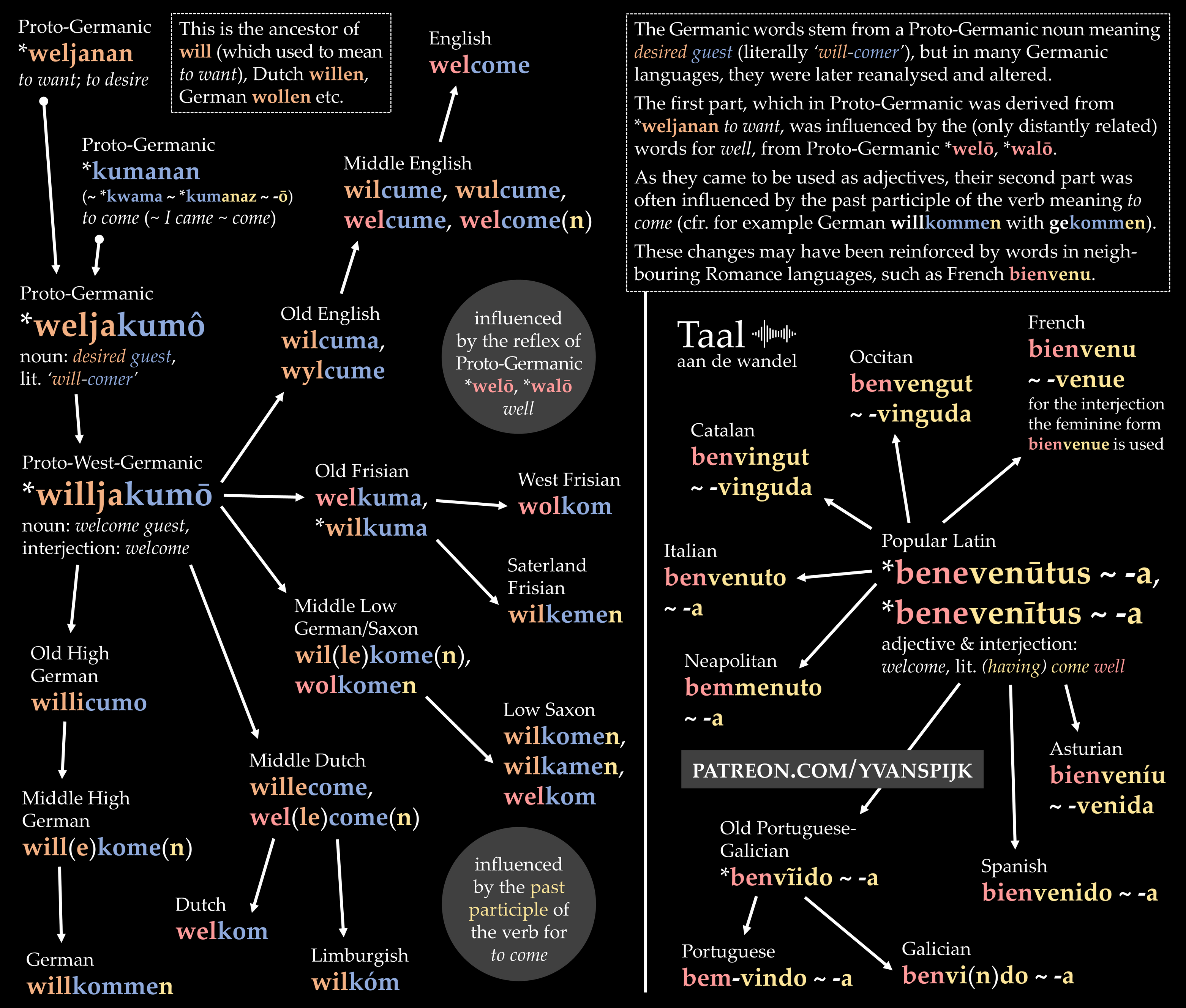Yoïn van Spijk on Nostr: The word 'welcome' may be interpreted as 'well-come', like 'well-received' and ...
The word 'welcome' may be interpreted as 'well-come', like 'well-received' and 'well-deserved'.
However, it stems from a Germanic word meaning "desired guest".
Perhaps under the influence of French 'bienvenu' ("welcome", literally "well-come"), the perception and the form of the English word and its Germanic cognates were altered. The infographic shows how.
1/

Published at
2024-07-18 19:28:02Event JSON
{
"id": "24c62f800cce3b989d2ee991de92776f676edf5e0637c86d29cd99a97522551e",
"pubkey": "8f448fb3588279f00baa209720fdef9a86a4a4f14c400526857f12793cac4f3e",
"created_at": 1721330882,
"kind": 1,
"tags": [
[
"proxy",
"https://toot.community/users/yvanspijk/statuses/112809140716798908",
"activitypub"
]
],
"content": "The word 'welcome' may be interpreted as 'well-come', like 'well-received' and 'well-deserved'. \n\nHowever, it stems from a Germanic word meaning \"desired guest\".\n\nPerhaps under the influence of French 'bienvenu' (\"welcome\", literally \"well-come\"), the perception and the form of the English word and its Germanic cognates were altered. The infographic shows how.\n\n1/\n\nhttps://static.toot.community/media_attachments/files/112/809/140/583/825/058/original/14db9f3c09d0209c.png",
"sig": "70e423909277064398f81e7c4d399855ea4d248cecc0dcb576881a91511aa5fb7171d3200eef99f9cf9a73acacde9709c0439411025c50a72314c9954b7daa0f"
}
